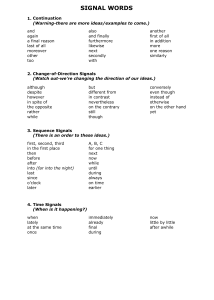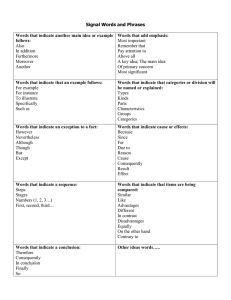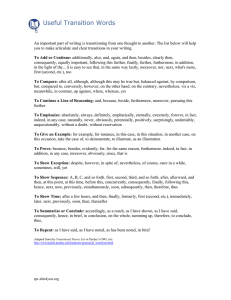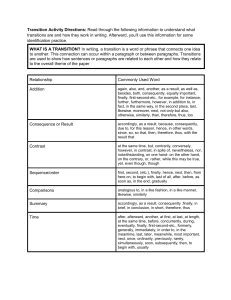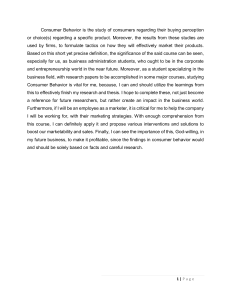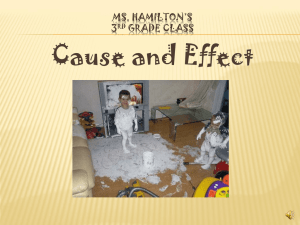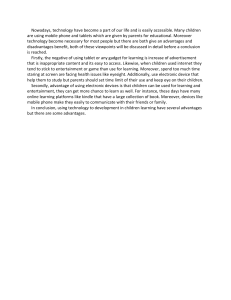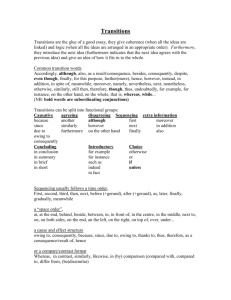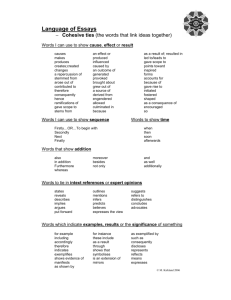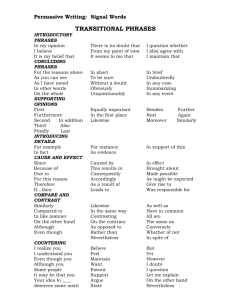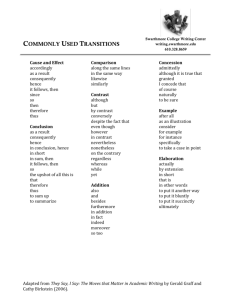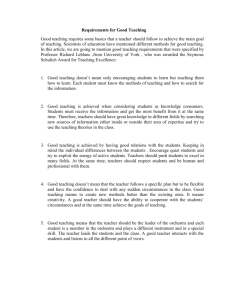Signal Words: Transitions for Effective Writing
advertisement
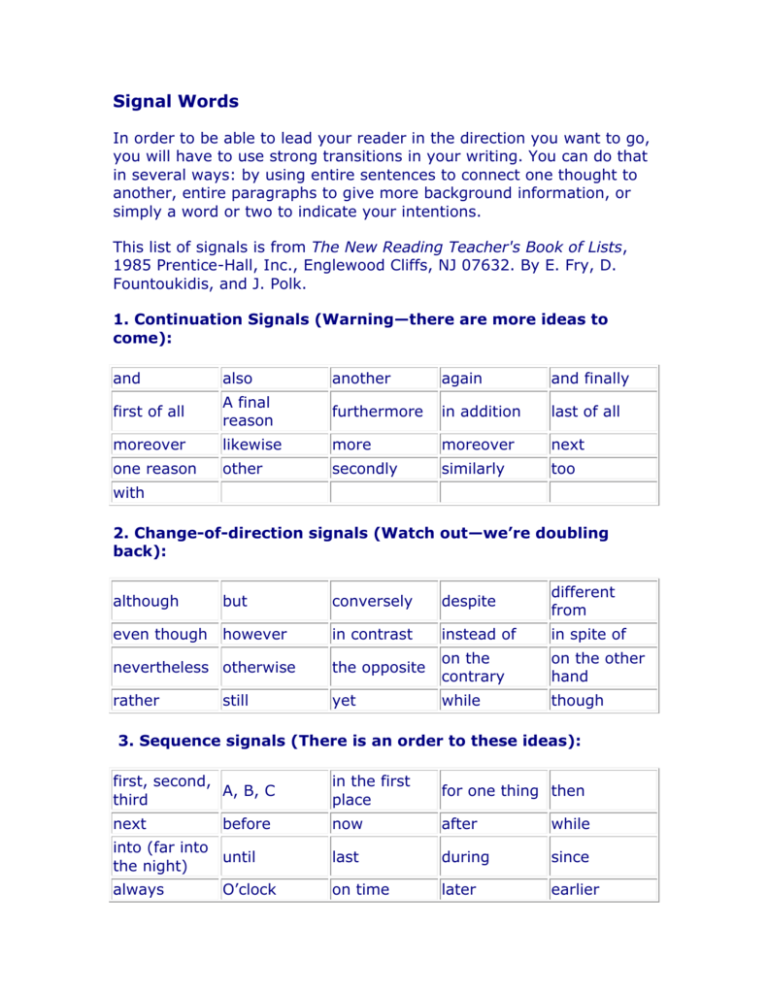
Signal Words In order to be able to lead your reader in the direction you want to go, you will have to use strong transitions in your writing. You can do that in several ways: by using entire sentences to connect one thought to another, entire paragraphs to give more background information, or simply a word or two to indicate your intentions. This list of signals is from The New Reading Teacher's Book of Lists, 1985 Prentice-Hall, Inc., Englewood Cliffs, NJ 07632. By E. Fry, D. Fountoukidis, and J. Polk. 1. Continuation Signals (Warning—there are more ideas to come): and also another again and finally first of all A final reason furthermore in addition last of all moreover likewise more moreover next one reason other secondly similarly too with 2. Change-of-direction signals (Watch out—we’re doubling back): conversely despite different from even though however in contrast instead of in spite of nevertheless otherwise the opposite on the contrary on the other hand rather yet while though although but still 3. Sequence signals (There is an order to these ideas): first, second, A, B, C third in the first place for one thing then next now after while into (far into until the night) last during since always on time later earlier before O’clock 4. Illustration signals (Here’s what that principle means in reality): for example specifically for instance much like in the same way as similar to to illustrate such as 5. Emphasis signals (This is important): a major it all boils development down to a significant factor most noteworthy key feature more than a major anything else event pay particular attention to a vital force remember that a central issue should be noted a distinctive quality the most substantial issue above all the main value especially important the basic concept especially relevant the crux of the matter especially valuable the chief outcome important to note most of all a primary concern the principal item 6. Cause, condition, or result signals (Condition or modification coming up): because if of for from so while then but that until since as whether in order that so that therefore unless yet thus due to resulting from consequently 7. Spatial signals (Answers the “where” question): between on by here there left right these close to near this side middle west beside east about north south around over under away in front of across into behind toward beyond above below opposite upon outside upon outside inside alongside over out far in adjacent near next to 8. Comparison-contrast signals (We will now compare idea A with idea B): and or also too best most either less less than more than same better even then half much as like analogous to but different from still yet however opposite rather while though although 9. Conclusion signals (This ends the discussion and may have special importance): as a result consequently finally from this we in conclusion see in summary hence therefore last of all 10. Fuzz signals (Idea not exact, or author to positive and wishes to qualify a statement): almost if looks like maybe could some except should alleged nearly might reputed seems like was reported purported sort of probably 11. Non-word emphasis signals exclamation point (!) underline italics bold type subheads, like The Conclusion indention of paragraph graphic illustrations numbered points (1,2,3) very short sentence: Stop War. “quotation marks”
